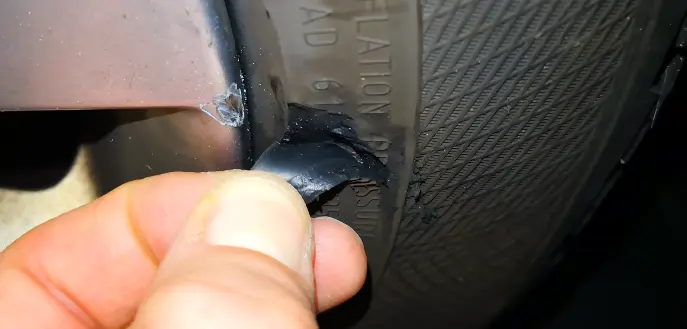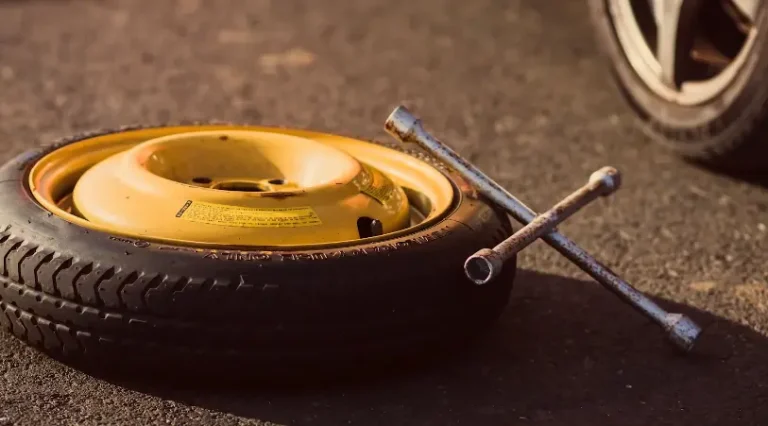Why My Car Makes Noise When I Turn
Usually, you may notice tire noise and wind noise while driving, but if you hear an unusual noise like squealing and screeching while turning, then you should have to inspect your car by a professional mechanic.
So, if my car makes noise when I turn, it clearly indicates a problem with my car’s suspension and steering system. In this article, we’ll discuss all the types of car noise while turning left or right at high or low speed and possible reasons for the noise.
Why Car Makes Noise When Turning
There could be multiple reasons to car makes noise when turning left or right at low or high speed. For instance, power steering issues, damaged tie rods, and damaged ball joints.

This issue could also be due to a faulty wheel bearing or an issue with the brake system. Let’s discuss all the types of car noises while turning, like clunking, scraping, groaning, screeching, rubbing, grinding, and knocking.
Car Makes Noise When Turning Right But Not Left
There are multiple reasons to car makes noise when turning right but not left, but the most common reason for this noise can be a problem with your vehicle’s steering or suspension system.
Tie rods are the most important part of the vehicle’s steering system. It connects the steering wheel to the wheels and keeps them moving in alignment, so broken or damaged tie rods can cause noise while turning.
Similarly, the damaged or broken suspension sturts can’t bear the vehicle’s weight when turning left or right and can create noise or bounce the car around.
Scraping Noise When Turning Right At Low Speed
If you hear a scraping noise when turning, then it could be due to the following reasons:
- Stucked road debris material in brake pads
- Worn, rusted, or thin brake pads
- Loose or damaged wheel bearings
- Worn or failing suspension parts
Inspecting and fixing the faulty part for a safe drive is important. If left unaddressed, the issue could lead to more serious damage to your vehicle and costly repairs.
Clunking Noise When Turning Left Or Right
The loose or damaged tie rod is the most common reason for clunking noise when turning left or right. When you turn the steering wheel, the tie rods are responsible for causing the tires to rotate in the desired direction.
But a worn-out suspension element, a tire issue, or a transmission-related problem can also make clunking noise while turning.
If you’re having issues with handling your car, the sway bar may also be damaged, and its noise may be heard from the vicinity of your front tires.
So, getting your vehicle checked out by a qualified mechanic as soon as possible is important to determine the cause of clunking noise and fix it. Taking care of it now will save you time and money in the long run.
Knocking Noise When Turning At Low Speed
The knocking noise when turning can be caused by worn-out ball joints and control arms bushings, loose lug nuts, broken or damaged suspension struts, and bad tires.
Furthermore, If tires are out of balance, misaligned, or have damaged or broken tire belts, they may produce a knocking sound.
Groaning Noise When Turning At Low Speed
If you hear groaning noise when turning, it could be indicative of several issues, including bad wheel bearings, a CV joint that needs lubrication, worn-out tie rods, or other steering components also power steering pump may need repair.
Groaning noise can be heard when you turn the wheel sharply or even if you just turn it slightly. So, it’s best to have a professional mechanic do an inspection to pinpoint the exact cause of the groaning noise and to fix this noise.
Rubbing Noise When Turning At Slow Speeds
The rubbing noise when turning can be caused by brake pads that are worn or cracked to the point of making contact with the brake rotors.
Also worn bearing in the steering wheel, and a worn-out steering rack can also cause rubbing noise, but it’s always recommended to inspect your vehicle by a mechanic to diagnose the exact problem and fix it.
Grinding Noise When Turning Left
The failing wheel or hub bearings are the most common cause of grinding noise when turning left. There could be some other reasons, like a worn cv joint, worn brake components, a worn or damaged seal in the power steering system causing a leak in the power steering fluid.
To identify the right source of a grinding noise when turning left, it’s recommended that take your vehicle to a qualified mechanic for an inspection and diagnosis.
Screeching Noise When Turning
The screeching noise when turning may be due to a lack of power steering fluid, contaminated power steering fluid, a need for lubrication in the suspension or steering components, or a problem with the power steering belt.
To identify the precise issue, it’s best to seek a qualified professional mechanic to address the problem before it worsens.
Frequently Asked Questions
Is it OK to drive with a power steering leak?
Yes, but it’s not advised as it can become very difficult to steer and dangerous to be on the road. To ensure safety, it’s best to get a professional to check your vehicle as soon as possible.
Is it safe to drive with a noisy wheel bearing?
Driving with a noisy wheel bearing can be dangerous, as it can be a sign of more issues related to the wheel and it should be fixed as soon as possible.
Do tie rods clunk when turning?
If you hear a knocking or clunking sound coming from the front of your vehicle when turning at low speeds, it could be an indication that your tie rods need to be replaced.
Can you drive a car with a bad ball joint?
No, it’s strongly advised to not take a chance with bad ball joints, as they’re part of the steering suspension system. It could lead to a loss of control of the vehicle and could be potentially dangerous.
Conclusion
If you’re hearing any strange noises from your car while turning, it’s good to get it checked out by a qualified and experienced mechanic.
We’ve gone over the various causes and types of car noises while turning in detail, so you’ll have an idea of what it could be.
It’s important to inspect your vehicle if you hear any unusual noises to make sure your vehicle is in good condition and safe to drive.






